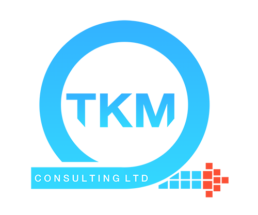Interviews are like marmite; you either love them or hate them. However, all of us would have at some point, had to undertake an interview in order to secure employment and pay those bills!
So, in Part 1 of this 2-Part series, I will be talking about Scrum Master recruitment. As an experienced member of the Agile community, I have not only been the interviewee on a number of occasions, but I have also been the interviewer. In this post, I will specifically share my thoughts, experience and top tips from the perspective of the interviewer.
Scrum Master Recruitment
The Interviewer
 First up, being the interviewer, it is key to know exactly what you are looking for. So when recruiting a Scrum Master, just like scrum, it is important to have a clear goal, set expectations, define the level and standard you are looking for, as well as ensure everyone is on the same page.
First up, being the interviewer, it is key to know exactly what you are looking for. So when recruiting a Scrum Master, just like scrum, it is important to have a clear goal, set expectations, define the level and standard you are looking for, as well as ensure everyone is on the same page.
To ensure each candidate is assessed consistently, I would advise that you and the other interviewers prepare a small bank of questions to pull from. Questions in this bank should be mostly situational. I’ve been in far too many interviews where the questions are too basic. For instance, a question like, “name all the ceremonies”, does not allow you to form an accurate opinion on whether the candidate is right for the role. One or two of these types of questions are good to gauge theoretical knowledge but you would assume that if a candidate has made it to this point, they know the basics. You do not want to sit in an interview with a candidate just regurgitating what they’ve read in the scrum guide.
The Interview
I like to start my interviews with a practical exercise.
For example, I often have a Kanban board in the room with some dummy stories; I ask the candidate to explore and explain what they can see, negative or positive. This exercise allows you to gauge the level of the candidate early in the interview, whilst providing an insight into their thought process.
Next comes the questions. As I mentioned earlier, these should be mainly situational. I’ll briefly go through some commonly asked questions in Scrum Master interviews…
“Give an example of a conflict in the team that you helped resolve.”
Through examples given by the candidate, you, the interviewer, are given insight in to their mindset and ways of working. By asking questions based on real life scenarios, you also get a sense of the candidate’s experience and how they respond in certain situations. The candidate’s cultural fit can also be ascertained through this particular type of question.
Remember, you can always dive deeper by asking open questions, such as “What was the outcome vs your desired outcome?” or “What if nothing changes?”. The discussion that follows can be very informative!
“The business wants the team to increase velocity, how do you get them to do this?”
Some may see this as a trick question. However, there are many ways to answer this question. I won’t give them away here, but it is always useful to ask thought-provoking questions that allow you to see how experienced a candidate is and gauge where they currently are on their Scrum Master journey. Depending on the answer given, it will give you a clear insight into the level at which they are at and their mindset towards Agile.
“Tell us about a time when you, specifically, have failed.”
This is one of my favourite questions to ask in an interview, but it tends to throw people off. Indeed, it is a difficult question to answer; no ones like talking about their failures. However, what I am looking for here is how honest and open the candidate can be. These are good qualities to have, especially as they are aligned with the scrum values. The candidate’s willingness to learn from mistakes can also be illustrated by this answer.
You can see further examples of questions for Scrum Master interviews in this article.
What Are You Looking For?
As previously mentioned, in Scrum Master recruitment, it is imperative to define the standard you are looking for. Having a marking sheet is good practice; not only does it allow the panel to be on the same page, but ensures candidates are assessed consistently. For example, each interviewer scores individual answers on a scale of 1 to 5, indicating how well they think the candidate performed. Scores can also be awarded based on the scrum values (again scoring 1 to 5).

When assessing your candidate, do not focus on just ticking boxes; focus on whether the candidate has the potential to succeed in the role. Undeniably, skill set is important, but also consider the candidate as a whole. That means asking yourself questions about whether the candidate has the right mindset, the right personality, and whether they’d fit into the culture of the organisation.
I’ve been in interviews with people who have an extensive CV with lots of ‘experience’ behind them, but was not offered the role. They had numerous certifications, however, they were unable to provide enough real world examples. This goes to show that although theory is important, it is equally important to have sound practical knowledge. Now that said, it is possible that some people are just not good at interviews, but I would argue that it is partially up to you, as the interviewer, to try and bring out the best in a candidate.
At the end of an interview, whilst it is still fresh, I tend to meet up briefly with all interviewers. We have a blind vote (to mitigate bias) and discuss the results before making the final call. Remember, focus on potential and whether or not they can grow into the role; this applies even when looking for a ready-made or more experienced candidate.
Structure Of The Interview
To finish, here’s how I tend to structure interviews for Scrum Master recruitment…
- Introductions and Check-In
At the start of the interview, introduce yourself (e.g. your name, role) to the candidate. Introduce any other interviewers on the panel too.
Then, have a brief check-in with the candidate after they’ve introduced themselves, making sure they’re okay and as relaxed as can be. As mentioned in my previous post, the significance of checking-in should not be undervalued.
- Interview Breakdown
Share the high level structure of the interview process with the candidate; knowing what to expect can help calm residual nerves.
- Practical Exercise
Starting with a practical exercise allows you to gauge the candidate’s methods and capabilities.
- Questions and Break
Ask questions from the bank as normal; delve deeper in to answers if necessary.
Have a break in the middle of the interview. Depending on its the duration, I like to give the candidate the opportunity to ask their own questions or have a toilet break.
- Feedback and Final Questions
A good way to end an interview is by giving candidates a feedback time frame aligned with your own company protocol. Leaving enough time at the end of the interview for the candidate to ask any further questions is another standard. The time I give in the middle for questions typically means this section is shorter.
- Office Tour
An office tour is a good way of breaking the ice or closing the interview. So if possible and when appropriate, give interviewees a mini tour of the workplace, namely the department area, breakout spaces and any cool features.
Thank you for reading. If you have any questions or Scrum Master recruitment tips of your own please drop a comment below.
Stay tuned for Part 2 of this post, where I dive into the Scrum Master interview from the perspective of the interviewee.
Your personal inventory for AgiliTEE.
